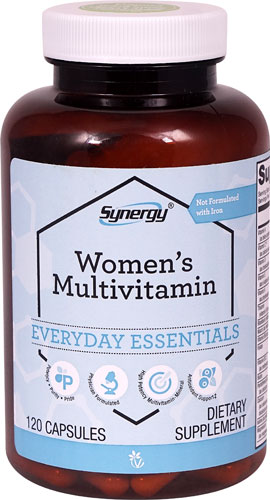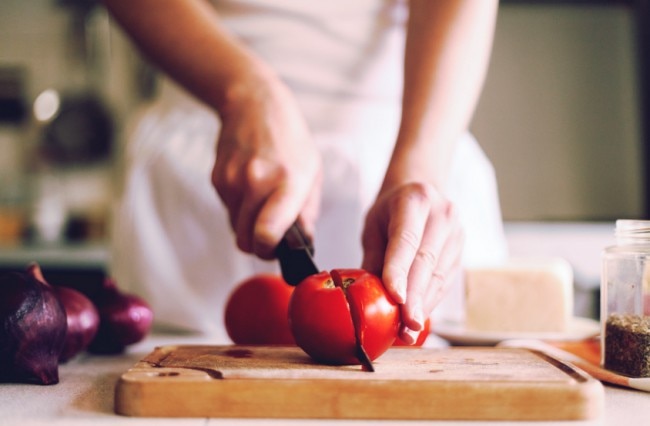Inflammation happens in everybody’s body. But when it goes wrong or lasts too long, inflammation can play a significant part in triggering serious ailments such as cancer, heart disease, diabetes and Alzheimer’s disease, according to the University of Liverpool’s Institute of Aging and Chronic Disease.
“The inflammation process has one goal — to respond immediately to detect and destroy the toxic material in damaged tissues before it can spread throughout the body,” according to the University of Alabama at Birmingham (UAB). “The trouble with inflammation occurs when the defense system gets out of control and begins to destroy healthy tissue, causing more damage than the original issue.”
You can head off that damage by ensuring inflammation-fighting foods are included in your diet. Here are 12 foods advocated by health and nutrition experts.
1. Citrus fruits
You might have read online that citrus foods promote inflammation, but the Arthritis Foundation squeezes all the juice out of that myth. Citrus fruits like oranges and grapefruits are loaded with essential antioxidants vitamin C and vitamin E, which UAB says are friends in the fight against inflammation.
2. Pineapple
Dr. Ryan Kneessi, who specializes in naturopathic medicine, says pineapple contains a digestive enzyme, bromelain, that has anti-inflammatory properties.
“Bromelain has been shown to have an anti-aggregant effect, meaning that it can stop blood platelets from sticking together or building up along the walls of blood vessels, which is vital for cardiovascular health,” Kneessi says.
3. Dark, leafy greens
Among the dark, leafy greens suggested by experts are spinach, kale and collards. The Vitamin K in these veggies is thought to help avoid chronic inflammation that contributes to conditions such as cardiovascular disease and osteoarthritis, according to a study released in 2013.
4. Tomatoes
Registered dietitian and certified sports dietitian Katie Kissane, owner of My Nutrition Coach, says the fruit’s red pigment, lycopene, is a potent antioxidant weapon in the war against inflammation. And yes, it’s technically a fruit, not a vegetable.
5. Fatty fish
Harvard Medical School says salmon, mackerel, tuna and sardines should be part of your anti-inflammation menu.
These fish contain beneficial omega-3 fatty acids, which researchers say are powerful anti-inflammation agents.
“Americans tend to eat too many foods high in omega-6 fatty acids found in vegetable oils and processed, fried fast foods. An excessive amount of omega-6 fatty acids has been linked to inflammation,” Kissane says.
6. Onions
Onions kick up the flavor of many dishes. But did you know they’re are also one of the best sources of flavonoids? As described by the Arthritis Foundation, flavonoids are “antioxidants that mop up free radicals in your body’s cells before they have a chance to cause harm.”
That harm can include inflamed joints, heart disease and cancer, the foundation says.
7. Turmeric
Turmeric is a traditional Indian spice related to ginger. Turmeric’s main compound, curcumin, is powerful, says Marina Yanay-Triner, a certified health and nutrition coach.
An academic study published in 2007 refers to curcumin as “the Indian solid gold” and touts its potential in combating diabetes, arthritis, Alzheimer’s disease and other chronic illnesses.
8. Grapes
Grapes are rich in natural antioxidants known as polyphenols. Mounting evidence indicates grape polyphenols are helpful in warding off cardiovascular disease and other inflammation-related maladies.
9. Green tea
Green tea tastes good, and it’s good for you, too. Researchers cite green tea’s high level of flavonoids, the antioxidants packed with anti-inflammation boosters.
10. Nuts
The Arthritis Foundation says nuts “are full of inflammation-fighting monounsaturated fat.” Some of the best anti-inflammation nuts are almonds, pine nuts, pistachios and walnuts, according to the foundation.
11. Virgin olive oil
An academic study published in 2011 says virgin olive oil contains numerous phenolic compounds that, thanks to their antioxidant powers, have proven effective in beating back inflammation.
“Use olive oil in recipes as much as possible, and decrease consumption of butter and other saturated fats,” Kissane says.
12. Açai berries
More and more research is pointing to the anti-inflammatory benefits of açai berries, which are South American natives. They’re chock-full of anthocyanin — a disease-fighting flavonoid — and boast a healthy fatty-acid ratio similar to olive oil, according to the Institute of Food Technologists.
Superfoods vs. super diet
Barry Sears, a biochemist and author who specializes in anti-inflammation nutrition, cautions that a handful of superfoods alone won’t succeed in corralling inflammation. Rather, he says, it’s your entire diet.
“As usual, the question should be not how to fight inflammation, but to manage it to maintain a zone of health,” Sears says. “Without adequate inflammation, we can’t fight off infection or heal from injuries. If we generate too much chronic low-level inflammation, the body begins to attack itself.”
Sears says an anti-inflammation diet should control NF-kBs — proteins that form the “master genetic switch of inflammation” — by:
- Being low in saturated fat and omega-6 fats.
- Being rich in omega-3 fatty acids.
- Being rich in polyphenols.
- Restricting calories without causing hunger or fatigue.
- Providing enough protein to stave off hunger.
- Offering moderate levels of carbohydrates.
- Providing adequate amounts of “fermentable fiber” to feed gut microbes.
“Looking for superfoods is a useless exercise,” Sears says. “You want to be looking for a super diet to keep inflammation in a healthy zone.”




